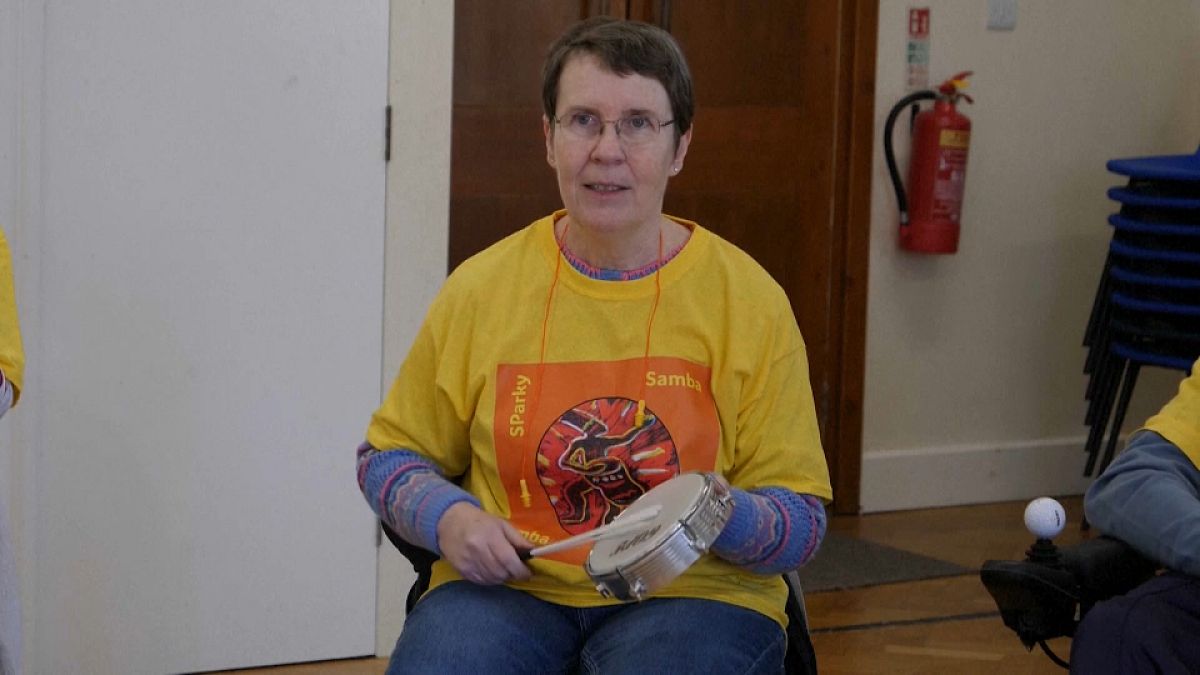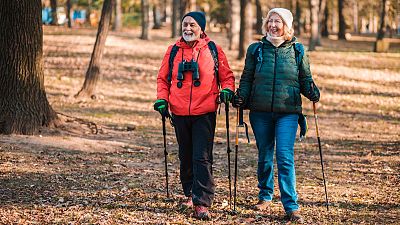Researchers at Cardiff University are hoping to launch a study to discover if there is clinical evidence that drumming classes are improving the lives of Parkinson’s disease patients.
A special samba drum class has been a refuge for Parkinson’s disease patients in Wales where they can move and socialise.
Now researchers in neurogenerative diseases are planning a study to see if samba really can help ease people’s symptoms.
Parkinson's disease is a degenerative disease caused by a loss of nerve cells. Due to a loss of the chemical dopamine, it affects body movement as well as mental health, according to the World Health Organization (WHO).
Parkinson’s patients experience problems with balance, standing, and walking and sudden rigidity as well as cognitive decline from dementia.
The founder of Sparky Samba, Eirwen Malin, is a Parkinson’s patient herself. She says she started the club after her son went to a samba concert.
“A big issue for people with Parkinson's, they sort of lose that sense of rhythm, they lose the rhythm of walking. Some people have this freezing gait thing where they just suddenly can't go anywhere, especially if you're in a doorway or something,” said Malin.
“And I just thought that the samba rhythms would help them. And I put it out on my Twitter network, which isn't huge, but it is international. And they all said, yes, that's a really good idea, give it a go,” Malin added.
Since then, the class has been receiving government grants which have helped establish several more classes around Wales.
Over the past year, the patients here have reported an improvement in their mood and movement.
“Before samba, I was struggling to get out [of] the chair, so at least I am a bit more mobile now. Not quite so stiff, which is part and parcel of Parkinson's, the stiffness in the joints. I tend to still be leaning over to one side, so I've got to try to prop myself up. But I think without samba I would be struggling,” said Brian Dews, one of the participants in Sparky Samba.
Study could help to understand if drumming helps
Researchers at Cardiff University are hoping to launch a study to discover if there is clinical evidence that these classes are improving the lives of Parkinson’s disease patients.
Cheney Drew, who works on the university’s drug trials, believes evidence is needed to show exactly what helps Parkinson’s disease patients.
She has previously investigated the impact of drumming on people with Huntington’s disease, another neurodegenerative disorder which can also affect movement.
“One of the reasons that we're doing the trial [is] trying to tease out those complex mechanisms and understanding is actually the drumming itself?” said Drew.
“So there's a phenomenon called rhythmic auditory stimulation which has been shown to improve the way the brain talks to itself and the way that messages are relayed around the brain. But also there may be a social component. We don't know that,” said Drew.
She says controlling for the social component carefully will be important in the experiments to understand how Sparky Samba may be helping Parkinson’s disease patients.
The study will measure symptoms such as freezing of gait and quality of life rather than dopamine levels and other biological symptoms.
“We do look at things called biomarkers, which are biological changes that occur as part of the disease. They are often a really good marker of how the disease is progressing,” said Drew.
“However, we don't have really good biomarkers for Parkinson's yet and so all clinical trials are based on a rating of clinical symptoms. And that will include, as I said, quality of life, motor and cognitive symptoms”.
The study is expected to run for 12 to 18 months.
The WHO has said that more people are becoming disabled and dying from Parkinson’s disease globally. The prevalence of the disease has doubled in the 25 years with at least 8.5 million people having it in 2019.
For more on this story, watch the video in the media player above.



